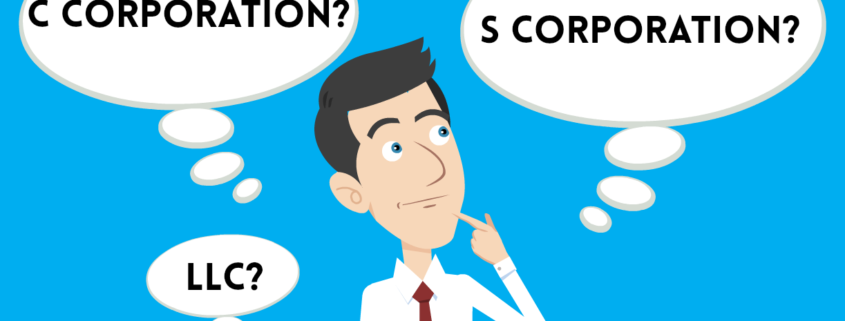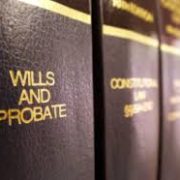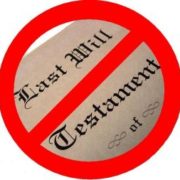I’m Thinking Of Incorporating My Business, What Is An S Corporation?
Are you thinking of incorporating your business? Have you considered becoming an “S Corporation” instead. Cleveland Business Attorney Baron Law LLC offers you the following information to consider before making the choice. What are the advantages of becoming an “S Corp”?
Nowadays many businesses are taking advantage of incorporation to protect themselves and their owners. A common question is which type of business structure is best. Should I create an LLC, C-Corp, or S-Corp? Sole-Proprietorship? Partnership?
As with many legal and economic questions, the answer isn’t black and white. The reason there are so many options when forming your business is because every business venture is different and possesses different opportunities and issues. That is why a good business attorney is invaluable. Ultimately, knowing which type of business entity to create is best found out through experience, and a good Ohio business attorney will have the necessary experience to help you make the best decision. For this discussion, though, S-Corporations are the focus. “S-Corps” have been steadily rising in popularity in recent years and many small business owners are wondering if and how using this type of incorporation is right for them.
What is an S corporation?
An S corporation is a pro-profit corporate structure that elected to be taxed under Subsection S of the Internal Revenue Code. Such election subjects the corporation to “pass-through” taxation while still retaining many of the benefits of “regular” incorporation.
The first primary distinguishing characteristic of an S-Corp is the pass-through taxation. That is corporate income, losses, deduction, and credits pass through the corporation to its shareholders for federal tax purposes. Thus, the shareholders report the profits and losses of the S-Corp, which is proportionally assigned to each shareholder’s ownership interest, on their individual tax returns and are taxed at individual income tax rates. This effectively avoids the double taxation that regular C-Corporations are subject to.
The second distinguishing characteristic of an S-Corp is the relative difficulty in formation. That is, compared to making an LLC or a C-Corp, the IRS/Secretary of State is much more stringent with the formal requirements of an S-Corp. Consequently, the initial satisfaction of these requirements and the continuing obligations inherent in remaining S-Corp eligible means more paperwork and corporate legwork is needed compared to other corporate forms. Ensuring these requirements are met, every year, is a major reason why Ohio business attorneys are retained. Finding out during tax season that your business was in violation of the IRS code and was subject to a completely different tax structure may leave a company insolvent or unknowingly operating at a loss for the fiscal year. Not exactly a fun conversation to have with shareholders.
What are the requirements of an S corporation?
Per the Internal Revenue Service, to qualify for S corporation status you must first file for “regular” corporate status then elect to become an S-Corp by submitting IRS Form 2553, Election by a Small Business Corporation. In order to file IRS Form 2553, a corporation must observe the following formalities:
The business must be a domestic corporation or a domestic entity eligible to elect to be treated as one.
The business cannot have more than 100 shareholders. (Note, spouses and members of the same family, respectively, are treated as one shareholder.)
The business must only be comprised of allowable shareholders. Only permittable individuals, trusts, and estates under the IRS code. Partnerships, non-resident alien shareholders, and other corporations are not allowed.
The business must only have one class of stock. Generally, a corporation is treated as having only one class of stock if all outstanding shares of the corporation’s stock confer identical rights to distribution and liquidation proceeds.
Each shareholder consents to the S-Corp election and manifests such consent in writing.
The business is not an ineligible corporation for S-Corp election, that is certain financial institutions, insurance companies, possessions corporations, or domestic international sales corporations.
Furthermore, S-Corps must also observe more stringent internal corporate formalities. This proves to the IRS that the S-Corp election, and its accompanying advantages, are being used for legitimate business purposes and not to the detriment of the public or for ill-gain. The logic is if shareholders are willing to follow the rules in regard to corporate management, then probably the business isn’t stealing or hurting people. Some of the required formalities for S-Corporations include: adopting corporate bylaws, issuing stock to shareholders, holding an initial director and shareholder meeting, holding the same meeting at least once a year, and recording and storing meeting minutes within corporate records. An experienced business attorney can draft a comprehensive business plan to follow and assist in its implementation.
What are the benefits of an S corporation?
Asset Protection
All corporations, like LLCs, C-Corps, and S-Corps, provide their owners/shareholders with limited liability protection. Limited liability means that the owners or shareholders personal assets are protected from claims of the creditors of the business. This includes claims that also arise from contract disputes and litigation, either the cost of defending or prosecuting litigation or via adverse judgments against the business. Without this shield, which comes from filing and choosing to operate a business via a corporate form, debts of the business attach to the individuals running the business. In light of this big personal risk, most people would choose not to operate a business. This is why a Cleveland business attorney is so important, these attorneys ensure that the required corporate formalities are followed so the limited liability shield is recognized by the courts and creditors and can protect you.
Pass-Through Taxation
As previously mentioned, S-Corps are classified as pass-through business entities. As such, they avoid double taxation that C-Corps are subject to. Double taxation occurs when dividend income is taxed at both the corporate level, when the business receives the profits, and at the shareholder level, when the shareholder receives their proportionate share of the business dividends. Instead of the IRS getting two bites, with S-Corps they only get one. Further, additional corporate benefits such as business income, tax deductions, losses, and certain credits also can pass through the S-Corp to the shareholders.
Deciding to incorporate and choosing which type of corporate structure to operate as are big decisions. The particular type of corporate form you go with fundamentally affects how you will run and manage your business. A business attorney is in the best position to advise and assist in making the best decision. Regardless of how you incorporate, any comprehensive corporate formation will include, at minimum, an operating agreement, certificates of membership, articles of incorporation, EIN number, subscription agreement, recommendations, and appropriate filing fee. For existing and soon-to-be corporations alike, make sure you have all these documents, failure to do so could cost you thousands of dollars down the line.
You don’t have to be rich to protect what you’ve spent a lifetime trying to build. To find out whether a trust is right for your family, take the one-minute questionnaire at www.DoIneedaTrust.com. There are a number of different trusts available and the choices are infinite. With every scenario, careful consideration of every trust planning strategy should be considered for the maximum asset protection and tax savings. For more information, you can contact Mike Benjamin of Baron Law LLC at 216-573-3723. Baron Law LLC is a Cleveland, Ohio area law firm focusing on estate planning and elder law. Mike can also be reached at mike@baronlawcleveland.com.
About the author: Mike E. Benjamin, Esq.
Mike is a contracted attorney at Baron Law LLC who specializes in civil litigation, estate planning, and probate law. He is a member of the Westshore Bar Association, the Ohio State Bar Association, the Cleveland Metropolitan Bar Association, and the Federal Bar Association for the Northern District of Ohio. He can be reached at mike@baronlawcleveland.com.
Disclaimer:
The information contained herein is general in nature, is provided for informational and educational purposes only, and should not be construed as legal or tax advice. The author nor Baron Law LLC cannot and does not guarantee that such information is accurate, complete, or timely. Laws of a particular state or laws that may be applicable in a given situation may impact the applicability, accuracy, or completeness of the preceding information. Further, federal and state laws and regulations are complex and subject to change. Changes in such laws often have material impact on estate planning and tax forecasts. As such, the author and Baron Law LLC make no warranties regarding the herein information or any results arising from its use. Furthermore, the author and Baron Law LLC disclaim any liability arising out of your use of, or any financial position taken in reliance on, such information. As always consult an attorney regarding your specific legal or tax situation.











